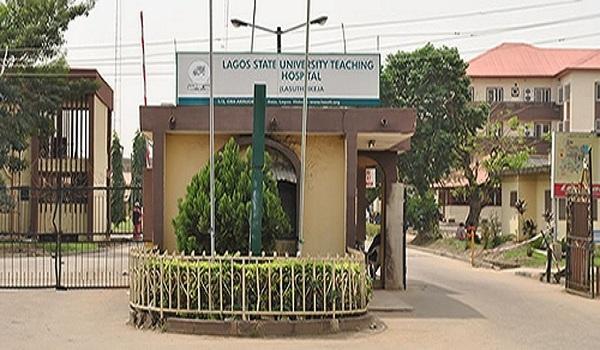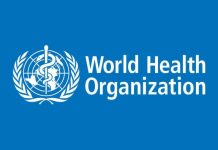
Countdown to calamity
At about 6:45 the next morning, I received a call from the stroke unit. The nurse in charge complained that we had not purchased necessary medications for the patient, and consequently delaying his treatment.
This got me bewildered – first, because we had bought and presented the medications prescribed at the emergency unit and nobody had said anything about buying other ones; and, second, because that alarm raised by the nurse just that morning meant that Ajuwon, whose stroke was ischemic, had spent about 36 hours without any major treatment.
When I insisted that we had left some medications the previous night, the nurse got upset and said she did not see any, and the patient would remain untreated. Fortunately, my sister was already on her way and I assured the nurse that she would soon be there to sort things out.
It was when my sister arrived and repeated what I said that the nurse clarified that those medications were not the ones recommended by the specialists that had come to examine the patient earlier. When the examination was done and how we were expected to know the new prescriptions remained a mystery. Besides, we reasoned that if all the time spent concocting the exploitative list of sanitary items had been spent ensuring that the patient had the right drugs, we would have bought them before leaving the ward that night.
Death potion
In any case, my sister immediately began to make arrangements for the new drugs, as well as a few more tests that were required. She seized the opportunity to check on her husband and found that nothing had changed about his condition. Strangely, however, a nurse she met in the ward told her that Ajuwon was starting to show signs of recovery. “He has even eaten before you came,” she eagerly said, to corroborate her claim. The wife was surprised, considering the state he was since he was brought. “What did he eat?” she asked. “Pap and moin-moin (bean pudding)”.
This triggered alarm bells for us because, even for many healthy people, any meal containing beans is a problem, due to indigestion and heartburn. How much more someone that was semi-conscious! When we later discussed this with a doctor elsewhere, he exclaimed in horror and wondered how the nurses could expect Ajuwon’s swallowing reflex and immune system to cope with both the feeding method and the food content at that critical stage. However, since we were dealing with people who, against global best practice, had forbidden us from being part of the decision-making process in caring for our loved one, we had to “let them do their job”.
By the way, we had every reason to believe that this forced oral feeding continued until Thursday afternoon when his condition had badly deteriorated. It was then that my sister was sent to get a feeding tube. We did not know what informed this sudden decision to get a feeding tube – which standard practice dictates should have been the first resort for a patient in Ajuwon’s case – until the next day. Meanwhile, every effort made to know the patient’s condition was rebuffed. Even when enquiries were made as to the details of the new test results and what to expect, not a bit of information was shared, despite repeated pleading.
Expected bombshell
It was around 8 am on Friday, when it was clear that the patient’s health had been hopelessly compromised and the farcical frenzy to “save” his life had begun, that one of the doctors sent for my sister. He informed her that Ajuwon’s brain had become swollen and that he had contracted a chest infection, which was aggravating his condition. He added that considering how severe his condition had become, only the ICU could save him, as he was already having to breathe through an oxygen mask.
Worried by this unexpected turn of events, the patient’s wife demanded to know why the idea of taking him to the ICU was still being contemplated when it was the only option left. The doctor replied that a team from the ICU would still have to come to assess him before making a decision. Still reeling with shock and disbelief, the wife demanded to know how her husband had contracted a chest infection in the same place that we had been assured would provide the best of care. It was then the doctor confirmed what we had feared all along – the infection had been introduced in the process of the oral feeding.
That piece of news dealt a devastating blow to the hopes of the wife, who, until that moment, had believed that everything was under control. She became even more alarmed when she peeked into the ward, moments later and saw that a privacy screen had appeared at her husband’s bedside. She immediately began to call family members to ask for prayers.
I was on my way to work when her call came in and it hit me like a thunderbolt. Like my sister, I had imagined that the reason the medical personnel were not communicating was because they had the situation under control. How did we get to start talking of breathing support just after only three days of admission into a “special-treatment” ward that was supposed to provide care for a minimum of 10 days? What specialised care gives a person a chest infection that aggravates their condition? In what specific ways did the overpriced “care” in the stroke unit different from what Ajuwon would have received in the emergency ward?
In any case, I assured my sister that I would be with her shortly.
Final blow
Shockingly, while the patient’s wife restlessly paced the premises of the stroke unit, beseeching God that her husband would not die, one of the nurses, who had the face of an angel but the heart of something unprintable, decided that it was the best time for her to “cash out”. She approached my sister and said that the oxygen mask on her husband had to be paid for because it was taken from another patient. She added that my sister would also need to pay for a “blood sugar test” conducted on her husband earlier that morning. Altogether, she demanded for N6,500. The disoriented wife could neither ask questions nor argue. She simply handed N7000 cash to the nurse, who never bothered to return her change.
Sadly, about 30 minutes after my sister’s first call that morning, she called back that her husband was no more. I was soon at the hospital to comfort her, even though everything still seemed unreal to me. I tried to demand answers from the medical personnel but could not get anything meaningful. They were either trying to gaslight us into believing that there was nothing unusual about Ajuwon’s case or telling blatant lies.
For instance, when I demanded from the nurse who was asking for instant payment while the patient was dying, as to why the semi-conscious patient was being fed orally, she denied it. Reacting to the disclosure that my doctor friend had forewarned me that the patient was being exposed to a grave risk by the way he was being fed, the nurse said I did wrong to have “misinformed” my friend. According to her, “From the way you said it, your friend must have thought that we were feeding him orally in his semi-conscious state. No professional would do that. We ensure that proper tests are done to establish that a patient can tolerate oral feeding before introducing it.”
Since that information contradicted my sister’s version, I rushed to where she was to know whether she was the one mixing things up. When she repeated that she was sure of what she had told me, I took her to the nurse to confront her. Apparently, with the few minutes that I had left the nurse, her colleagues had confirmed that our version of event was true. Thus, by the time I returned with my sister, she had changed her tune. When I confronted her with my sister’s claim, she said she had not denied that the patient had been fed orally; she had only insisted that tests must have been conducted to determine that he was fit to be fed that way.
But that was one of the several antics employed by the stroke unit personnel to bamboozle us into accepting that they had not murdered Ajuwon. In fact, some days after, following my threat to expose the deadly scam perpetrated in the unit, we received a call from one of the nurses that we must give consent to the hospital to conduct an autopsy on the deceased. According to the nurse, without the consent, the corpse would not be released to the family. My sister became jittery on hearing this but I assured her that it was all a ploy to cover up their tracks and we would not succumb to such intimidation.
And, of course, we stood our ground when we went to receive Ajuwon’s body for burial, on 29 September.
Who will stop this plague?
It is common knowledge that while Nigerian government hospitals parade the best of experts, they are also plagued by the worst assemblage of personnel with ethical and attitudinal deficiencies. Almost on a daily basis, there are reports of nurses, who swore to be like Nightingale, manifesting as nightmares to patients; and of physicians, who vowed to be like Hippocrates, proving to be hypocrites. Same applies to other personnel in these hospitals.
Whether those in authority will take necessary steps to address this perennial calamity or continue to turn a blind eye is a matter of conjecture. In fact, while planning to pen this piece, a few persons had cynically asked me what I hoped to achieve, since this is not the first time that damning reports have been written about gross misconduct from health personnel, leading to needless deaths and injuries.
Besides, I also know that all who were involved in Ajuwon’s case would try to cover their tracks by altering the reports and records of what transpired in the course of the sham treatment given to the deceased. An insider actually told me that a common specialty of most government hospitals, especially LASUTH and LUTH (Lagos University Teaching Hospital), is doctoring patients’ reports, with such mastery that no disciplinary panel can find them culpable of any wrongdoing. Still, I felt obligated to do my professional duty, and to forewarn that the interesting thing about life is that what goes around always finds a way of coming around.
Indeed, while trying to console her daughter, despite being inconsolable herself, my literary-inclined sister had made a poignant reference to J.P. Clark’s poem, “The Casualties”. In my pensive state, I heard her recite and explain the first two lines, “The casualties are not only those who are dead; they are well out of it. This means that the dead are better off because they don’t feel anything anymore. The casualties are those of us left behind to deal with not just the traumatising memories of watching our loved ones wasted by those who swore to care for them but also with the fear that we may someday be their very next victim.”
Let me add to this by saying that if this ill wind of pervasive misconduct that is particularly common to public hospitals in the country continues to blow unchecked, let nobody feel immune to its ravages. Not even the CMDs of these slaughterhouses should consider themselves and their families cocooned from the cannibalistic culture being created under their watch. That next victim that Mrs Ajuwon was referring to could be anybody. And I mean, anybody.










